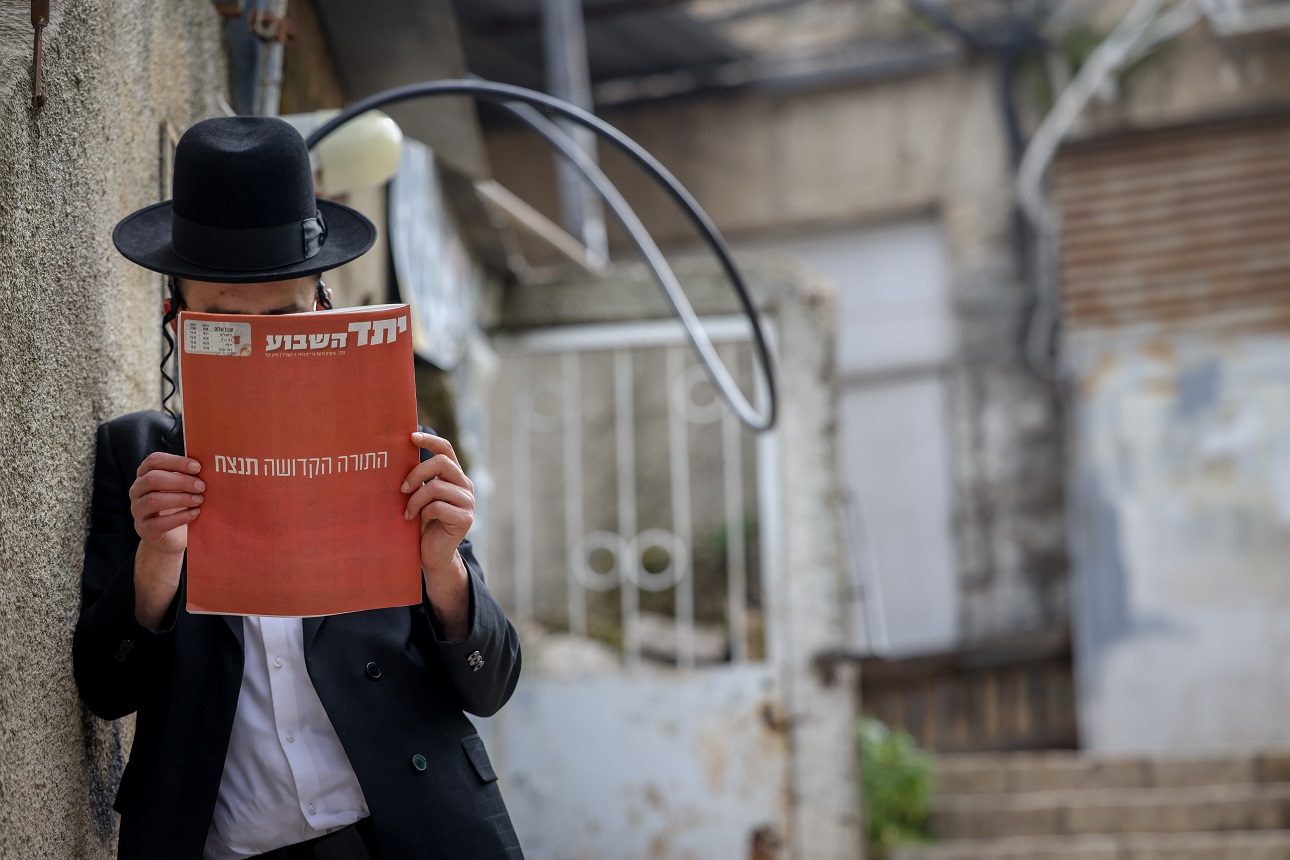"Guilty Feelings Are Unjustified" – Really?
An examination of opinion columns in the Haredi press reveals what the sector's leadership truly fears in the conscription issue, and it is not about a specific law or the possibility of coercion.

Photo by Chaim Goldberg/Flash90
In the first months of the war, when the updated manpower needs of the IDF began to become clear, the army and the Ministry of Defense initially chose the easy solution—increasing the burden on regular and reserve soldiers. Complaints from reservists led to a startling revelation: there is a reserve of healthy young people who can serve in the IDF—young Haredim—even though their “Torah is their profession,” in times of trouble, there is an opportunity to save.
The Haredi newspapers Hamodia and Yated Ne'eman led the charge. They clarified that the Haredim are full partners in the war: "Yeshiva students have one role: to study, study, study. This is not just a partnership; this is the real defense. Anything that can interfere for any reason must be kept outside the walls, beyond the moat, raising the chains, and closing the gates. It is mandatory to 'be with them in trouble,' but 'with them' is through Torah study that protects and saves [...] This is the weapon that the world of Torah excels in, and it is the only weapon it should take from the armory and go to war!" (Yated Ne'eman, 12/19/2023).
This colorful description presents the Haredi yeshivas as a medieval fortress surrounded by walls and moats. From this fortress, they can protect everyone. But this protection is not just external against enemies who rise to kill us but also internal—against those who try to change the Haredi society. Against them, the fortress systems must be used—raising the chains and closing the gates.
The columnists know that their words do not truly convince Israeli society, so they emphasize:
"It is difficult to say this to the ears of mothers consumed with burning concern for their sons on the front lines because to human eyes, the power and influence of Torah learners are not apparent [...] They simply will not understand what we are talking about. But we inside must continue to be strong. Not to be deceived by external appearances as if only standing and wearing uniforms will save the nation of Israel." (Yated Ne'eman, 11/12/2023).
While Israeli society is represented by "mothers consumed with burning concern" or "human eyes," the writer also addresses the Haredi society. He says it must be careful not to "be deceived by external appearances" and should never think that "wearing uniforms will save all of Israel." What are the writers afraid of? The next text seemingly answers this question:
"It is impossible to ignore the emergence of 'guilty feelings' about being 'outside the front.' Some come spontaneously, and some are fueled by secular elements with an interest that has always aimed to bring the Haredi public closer to IDF service" (Yated Ne'eman, 10/20/2023). The writer later claims that the Haredim are partners in the war through Torah study: "We know well that guilty feelings are unjustified. We are true partners in the war."
To whom are these cries directed? Assuming that the number of non-Haredi readers of Hamodia and Yated Ne'eman is tiny, it is clear that the newspapers address their classic readership—Haredi Hassidim and Litvaks. It could be argued that these cries are unnecessary; after all, it is clear that yeshiva students whose Torah is their profession do not consider enlisting in the IDF.
The newspapers would not be blaring these sentiments so loudly unless they recognized a clear and present danger—not just outside the Haredi society but also within it. They understand that the move is possible, that the "internal threat" is real. They probably understand that many young people do not truly study Torah and it is unreasonable that they do not enlist. They also probably understand that the young people's guilt feelings about their peers being killed and injured defending the homeland while they sit and study indicate they are healthy and moral people.
It seems that the Haredi press understands that what separates the Haredim from IDF service is not Torah and its study but politics. As long as politicians on both sides are engaged in a struggle—the secular calling for Haredi conscription and the Haredim opposing Haredi conscription—there will be no change. The moment there is a fundamental political change when there is a real desire to fix the situation, a solution to Haredi conscription will be found. This is what they are likely afraid of.
Dr. Rivka Neriya Ben-Shahar is a senior researcher in the Ultra-Orthodox in Israel Program at the Israel Democracy Institute and a faculty member in the Communication Department at Sapir Academic College.
